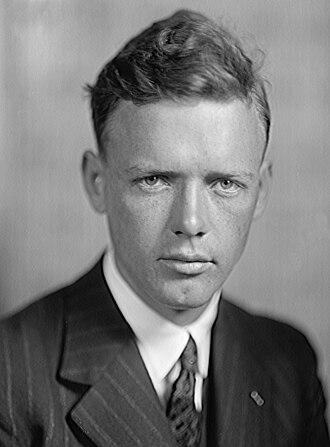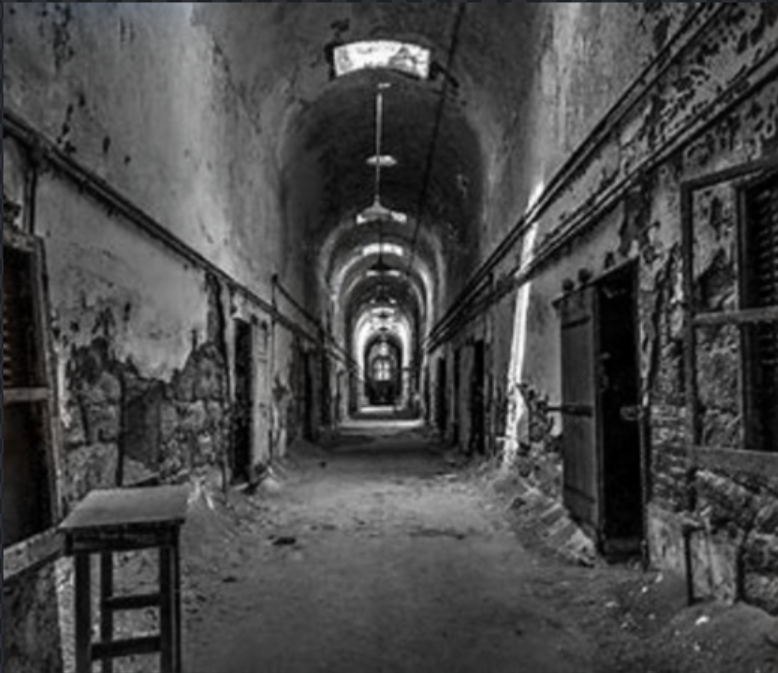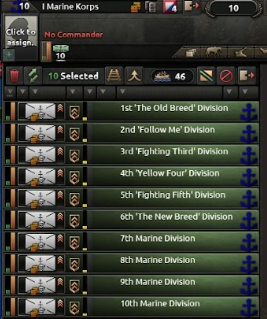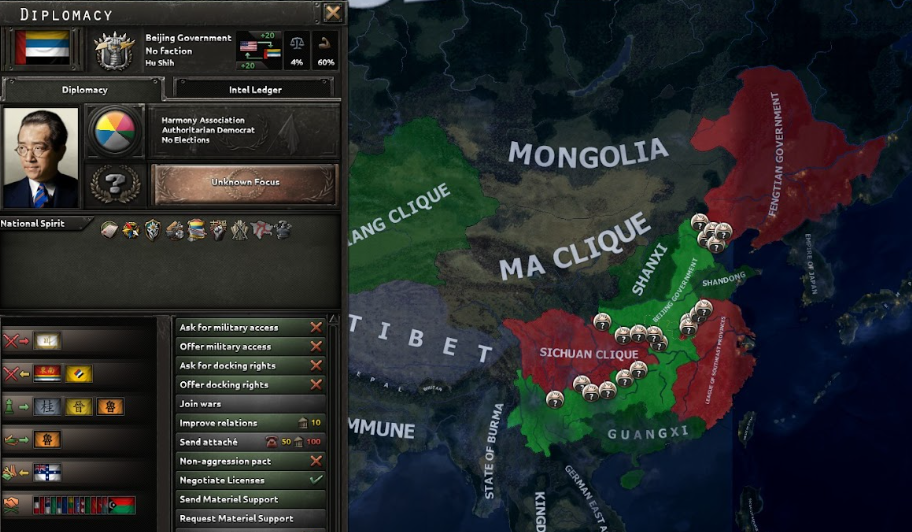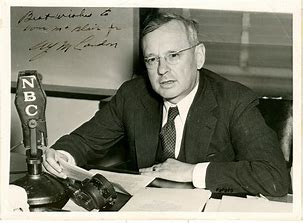Chapter 17: The Denver Trials (Part 1)
"Justice consists not in being neutral between right and wrong, but finding out the right and upholding it, wherever found, against the wrong."
-
Theodore Roosevelt
From the moment MacArthur launched his coup d’état, he knew that if he wanted to "save" America, he needed the judiciary's support. For this reason, he initiated contact with the various justices of the Supreme Court. However, he did not receive the support he expected. Three justices were former Southern Democrats, now loyal to Huey Long. Meanwhile, the other five vehemently opposed any coup attempt, especially since Reed had not yet won the elections. However, when former President Herbert Hoover approached the last name on his list, he realized he might have an opportunity with Justice Felix Frankfurter.
Frankfurter was a prominent figure of his time and an unconventional Supreme Court Justice. Born in Austria-Hungary, he emigrated to New York at the age of 12. A few years later, he graduated with honors from Harvard Law School and began working as an aide to U.S. Attorney Henry L. Stimson. When Stimson was appointed Secretary of War, Frankfurter became his confidant and headed the Bureau of Insular Affairs. During this period, young Felix was an ardent supporter of Theodore Roosevelt and his "New Nationalism" political ideology. However, when the Republican Party nominated Taft Sr. instead of former President Roosevelt in 1912, Frankfurter ceased to feel represented by the establishment parties.
After Woodrow Wilson's rise to power, Frankfurter began teaching law at Harvard University, promoting the major judicial philosophy of post-MacArthur America: judicial restraint.
This theory, developed by Frankfurter and other professors, argued that judges should always collaborate with the status quo and defend decisions made by Congress and the Executive Branch. Frankfurter opposed "judicial activism," which involved driving social and economic change through court rulings. While teaching, he also served as an advisor to the President’s Mediation Committee and the National Consumers League. This experience exposed him to the leftist theories of the time as he dealt with strikes and insurrections across the country. His resolutions to these conflicts were characterized by progressive solutions, such as raising wages. Frankfurter believed that "unsatisfactory and remediable social conditions if ignored, lead to radical movements that far exceed the original impetus."
His activities led the public to view him as a radical lawyer advocating for progressive principles. Former President Theodore Roosevelt, his former idol, accused him of being "dedicated to excusing men precisely like the Bolsheviks in Russia or the syndicalists in France or Britain."
Frankfurter's actions continued to draw attention to their alleged radicalism. In November 1919, he chaired a meeting in support of U.S. recognition of the newly created Union of Britain and the French Commune. In 1920, he helped found the American Civil Liberties Union (ACLU). After the arrest of suspected radical syndicalists during the Palmer Raids of 1919–1920, Frankfurter and other prominent lawyers signed an ACLU report condemning the "completely illegal acts committed by those charged with the highest duty of law enforcement." The report highlighted entrapment, police brutality, prolonged incommunicado detention, and violations of due process in court. Ultimately, the prisoners were released.
During this time, J. Edgar Hoover closely monitored Frankfurter, referring to him as "the most dangerous man in the United States" and describing him in a report as a "propagator of socialist ideology." For the rest of the 1920s, Frankfurter focused on defending his positions in the media and teaching. The turning point came in 1931 when a vacancy arose in the Supreme Court following the death of a justice. Herbert Hoover, in his first term and lacking a majority in both chambers, was in a precarious position. He needed support from either the AFP or the SPA. Despite being a conservative, Hoover nominated Felix Frankfurter as a justice on the advice of his legal advisor. The SPA, led by Jack Reed, supported the nomination, believing that at last, a socialist justice would join the Supreme Court. They couldn’t have been more wrong.
From the moment he assumed his position, Frankfurter implemented his policy of judicial restraint. His first major case, Brown Brothers v. Virginia, demonstrated his theory as he sided with the state despite his personal political beliefs. That same principle guided him when he was approached to support the coup against President Reed. Although the two men knew each other and shared some opinions, Frankfurter prioritized the Union above all else. For that reason, he joined MacArthur’s conspiracy. Thanks to Frankfurter, the exiled Congress in Denver was able to depose all the Supreme Court justices and replace them with allies or his disciples. By the time the Denver Trials began, it was clear to everyone that Frankfurter’s opinion would be the only one that truly mattered.
Frankfurter understood that these trials could not be mere summary proceedings. Edgar Hoover and Dwight Eisenhower shared this view. This group, referred to by historians of the post-MacArthur period as "the Triumvirate," was an unlikely alliance. They didn’t share political ideas and barely got along (Hoover had even pursued Frankfurter in the past). Yet they all recognized their shared role in shaping the new America. Hoover controlled the FBI. Frankfurter represented the judiciary. Eisenhower held sway over a significant portion of the military, revered as the "conqueror of California." This alliance had one purpose: to protect democracy. Whether through legal or illegal means, the Triumvirate considered itself the guardian of American democracy. To fulfill this mission, they needed to prevent the trials, inherently political, from devolving into chaos. Frankfurter ensured that the law was applied equally to all parties.
----------------------------------------------------------------------------------------------------------------------------------------------------
Smedley D. Butler
Smedley D. Butler had been the most decorated Marine before the Civil War. However, his experiences in various American interventions abroad convinced him that America was not fighting for its security but for Wall Street’s interests. After leaving the service, he campaigned to educate and properly compensate veterans of the "Banana Wars" and authored the book War Is a Racket, which criticized Wall Street’s influence over American foreign policy and the needless deaths of soldiers. Surprisingly, many soldiers resonated with Butler’s message and praised him. In 1932, he visited the "Bonus Army" protests outside the Capitol alongside his son. General Douglas MacArthur, under orders, dispersed the protesters, including Butler himself. This event prompted his final retirement from the military.
By 1936, Butler was invited by the SPA to testify before Congress about a possible conspiracy within the military. He claimed that some military contacts had informed him of General MacArthur’s plans for a coup. Despite the SPA's concerns, a coalition of establishment parties and the AUS silenced the rumors. When MacArthur finally executed his coup, Butler didn’t hesitate to offer the CSA his support in forming a regular army to combat the enemy. Jack Reed appointed him Marshal of the Second Continental Army. His performance during the war was notable, leading several successful syndicalist offensives. However, the influence of Gus Hall and the Red Guards undermined his efforts to centralize and professionalize the army. He was ultimately captured shortly after Jack Reed’s death.
Butler was charged with treason for violating his military oath and Article III, Section 3 of the Constitution. Prosecutors, led by Wendell Willkie, accused him of collaborating with foreign powers to destroy the nation. His defense, led by Arthur Garfield Hays, a longtime friend of Frankfurter, argued that Butler had made mistakes but had not betrayed the country. However, the facts were clear to everyone. Butler was sentenced to death by firing squad. Despite efforts by Eisenhower and Bradley to intervene, Frankfurter remained inflexible. Butler’s last words were a cry of defiance: "Long live freedom!" He was buried in his native Pennsylvania.
William Z. Foster
William Z. Foster was one of the few CSA members who surrendered to American forces. Unlike others, he refused to flee to France and turned himself into Bradley’s First Army. During Reed’s government, Foster had served as propaganda secretary, aligned with the party’s totalist wing. He was charged with treason and collaborating with foreign powers. He was hanged, and his body was cremated.
Earl Browder

Earl Browder, a key figure in Reed’s government as Secretary of State, had worked to secure aid from the Third International. Although he fled to France, he couldn’t escape his fate. After the war, Browder became the leader of the socialist American government in exile and toured socialist countries seeking recognition. This proved his downfall.
In early 1939, Browder visited Mexico City, where he was welcomed by the totalist government. However, on the night of January 26, he disappeared from his hotel room. Two days later, a battered and weakened Browder appeared in the provisional prison for defendants. FBI agents had reportedly abducted him from his hotel and brought him to the Texas border. Despite protests from socialist governments, Browder couldn’t escape his fate. He was hanged alongside Foster, and his body was cremated.
Other prisoners faced varied sentences. For instance, Norman Thomas was sentenced to life under house arrest. Others were less fortunate and condemned to rebuild Washington alongside other CSA prisoners. Notably absent was Gus Hall. Although sentenced to death in absentia for war crimes and treason, the guerrilla leader continued his fight, moving increasingly eastward. Officials assured the public that the guerrilla resistance would be eliminated by year’s end.
Frankfurter's sentences demonstrated pragmatism. By executing the most revolutionary leaders, he sought to convince surviving socialists that armed struggle was not the answer. However, as long as Hall’s guerrilla movement persisted, peace within the left would remain elusive. The focus now shifted to trying the criminals of the AUS and the Pacific States.
Charles Coughlin
Charles Coughlin, known as Father Coughlin, was a Canadian-American Catholic priest with a parish in the United States, near Detroit. Perhaps influenced by the proto-socialist atmosphere of the city, Father Coughlin gradually adopted an anti-Wall Street rhetoric in his sermons. However, the SPA's lack of clericalism distanced him from socialism. As a result, he ended up joining Huey Long's America First Party.
Thanks to Coughlin, Huey Long gained favor among some northern Catholics and greatly benefited from Coughlin's radio program, which often served as pure propaganda. Over time, and with popular support, Father Coughlin became the leader of the most anti-capitalist and religious faction of the party. In fact, some suspected that he might be named vice president by Long himself. However, pressure from corporations led to Charles Lindbergh being chosen as the vice-presidential candidate instead. This enraged Coughlin, who felt attacked by the party's conservative faction and believed it to be infiltrated by Wall Street Jews. Nevertheless, the civil war prevented him from fully breaking with the party. During the two months of Huey Long's government, he was tasked with organizing rallies throughout the war zone. However, all his prayers proved useless against the First Army.
Father Coughlin was tried for treason and for inciting violence and racial hatred. Finally, and to the surprise of many, the Vatican intervened. Although the Pope despised the priest, he feared that allowing him to be tried by secular courts would harm the Papacy's already precarious international position. For this reason, the tribunal found him guilty but exiled him to Argentina, where he lived anonymously in a monastery until his death.
Charles Lindbergh
Charles Lindbergh had been a star in American society. His aviation feats had made him a widely recognized figure. However, the murder of his son by an immigrant-led him to feel justified in entering politics, this time through the AFP. Although he failed in the 1936 gubernatorial elections, Long named him the provisional vice-presidential candidate ahead of the presidential elections. However, the aviator was little more than a puppet for business magnates like Henry Ford. After Huey Long fled to Vargas' Brazil, it was Lindbergh who surrendered the remnants of the AUS government.
Defended by Arthur Garfield Hays, the defense argued that Lindbergh had committed no treason. However, upon taking charge of the AUS, he did recognize the danger posed by the CSA and surrendered to MacArthur. In the end, the tribunal found him guilty of treason but acquitted him of collaborating with foreign powers. The court sentenced him to 12 years in prison.
Gerald L.K. Smith
Gerald Lyman Kenneth Smith was an American clergyman, politician, and organizer known for his populist and far-right demagoguery even before the AFP's founding. However, the creation of Huey Long's party soon positioned him as the informal leader of the party's extremist wing. It was thanks to him that Long implemented his campaign promise of "Share Our Wealth." During the war, he served as Secretary of the Treasury. To raise funds, he used Long’s Minutemen to extort entire towns and cities. Upon learning of Kingfish's escape, he attempted suicide by shooting himself in the head. However, he failed, merely destroying part of his jaw. He was tried for treason and for violating the property rights of American citizens. Ultimately, he was executed by firing squad, as using a noose was impossible due to his shattered jaw.
Others who could have been tried included Henry Ford and George Van Horn Moseley. However, the death of the industrial magnate and the suicide of the AUS Chief of Staff meant there were hardly any political figures left to prosecute. Now, only the generals remained. Finally, to the military's great anticipation, it was time to employ military prosecutors and attorneys.
-----------------------------------------------------------------------------------------------------------------------------------
I'm back! At least temporarily. The first few weeks of 2025 have been tough academically. Lots of assignments. That has worn me down a bit, so I've preferred to spend my free time reading about American politics between 1932 and 1990. I've also taken the opportunity to play Suzerain! By the way, I'd like to thank those of you who nominated me for the different awards. It reminds me that there are people who enjoy this story  . In the next chapter we will see the 2º Part of the trials!
. In the next chapter we will see the 2º Part of the trials!
Loyal to what though, the ruler or the nation?
That is probably the fundamental question that needs to be answered. To whom does the citizen owe their loyalty? Right now, MacArthur could be considered the Father of the Nation. He has "saved American democracy." Until America can answer that question, I doubt the nation will be able to rest.
I bet most of that money, in some way, can be traced back to the FBI.
The growing influence of the FBI is worrying. It all depends on how ambitious J. Edgar Hoover is. Is he truly trying to save democracy? I'm not so sure.
As we've seen, the FBI seems to act almost independently of Landon. And don't doubt it. Hoover is using it to expand his influence. As for democracy, it seems Hoover wants to save it. Do you trust him? Eisenhower and Frankfurter do.

I’ve finally managed to catch up and this is really good! I’ve enjoyed the arc of the Second Civil War and the personal scenes add excellent notes of color.
Keep up the great job!
Thank you! Soon we will have more scenes between characters.
Democracy is not only dead. It's getting beaten and dug down even deeper in the earth.
It seems that way. Without a doubt, poor Landon is suffering a lot. But let's not be pessimistic. The Triumvirate is ready to fight for democracy.
Democracy may end up being a rubbery concept in this time line. There’s not a lt of it around!
Well, without a doubt, that seems to be the case:
Japan: "False" democracy/ Oligarchy
Germany: Ineffective democracy, with 19th-century systems.
France/Britain: Totalist dictatorship
Rusia: Ultranationalist dictatorship
USA: democracy?
America probably had a part to play in this, seeing as oil is involved...
It could be. However, for now, we're already busy enough to get involved there. But we would need to decide who we support. Who could guarantee us more oil supply? Undoubtedly, there is conflict in the cabinet about who to support.






